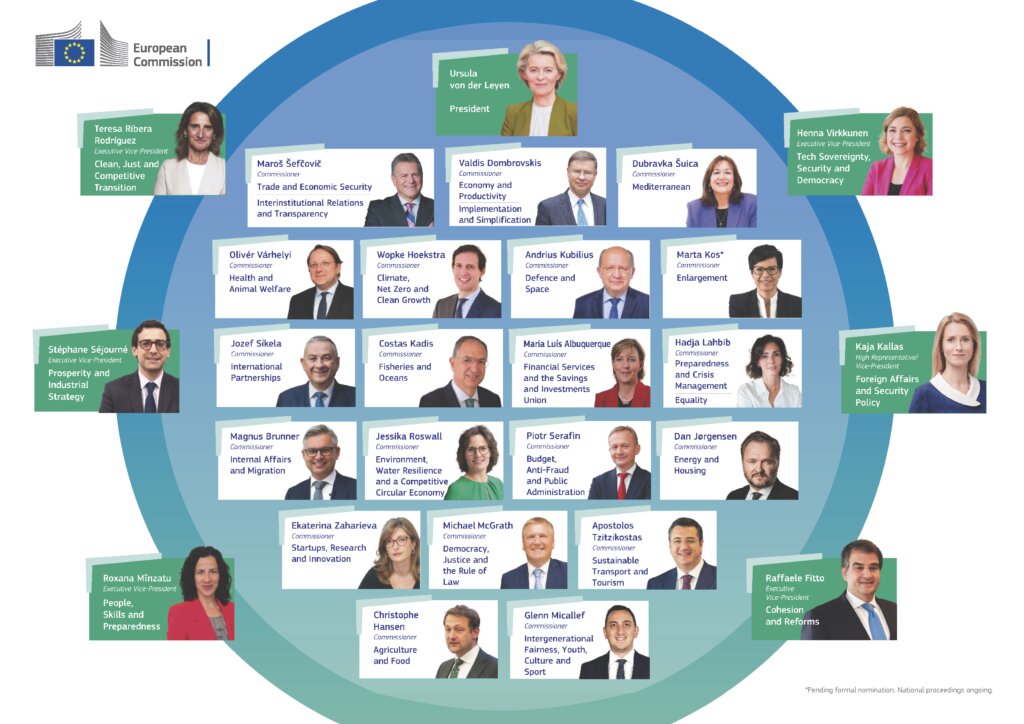How the 2024 European Commission May Impact Sustainable Mobility in Developing Regions

On 18th July 2024, European Commission President Ursula von der Leyen presented the political guidelines for the Commission’s 2024-2029 term. Later, on 18th September, she unveiled the new College of Commissioners, comprising six Executive Vice-Presidents and 20 Commissioners.
These changes may influence international cooperation efforts, particularly in supporting sustainable urban mobility initiatives in the Global South. This article explores the potential impacts on climate policy, development cooperation, and transport, and how they might affect MobiliseYourCity and its partners.
General Trends in the New Political Guidelines and Commission Board
The new political guidelines reflect the Commission’s focus on European competitiveness and security, with climate and energy policies mostly linked to economic priorities. The Clean Industrial Deal, aimed at driving both industrial growth and environmental sustainability, signals a stronger orientation for economic growth that aligns with sustainability goals.
Climate
Climate policy remains a priority for the European Commission but with a stronger emphasis on industry-driven solutions. The Clean Industrial Deal, designed to complement the European Green Deal, aims to boost the EU’s industrial competitiveness while pursuing climate objectives.
Key measures include scaling up renewable energy, decarbonising industries, and regulating foreign subsidies.
Teresa Ribera, Vice-President for "Clean, Just and Competitive Transition", will play a leading role in shaping the EU’s climate policy. Her background in climate and sustainability policy and her experience in international cooperation could open opportunities for collaboration with the Global South and bring new opportunities for the MobiliseYourCity Partnership.
Wopke Hoekstra, Commissioner for "Climate, Net Zero, and Clean Growth," has limited experience in climate policy. However, his mission letter’s focus on global carbon pricing could help attract investment in sustainable transport in developing regions. Other notable Commissioners include Dan Jorgensen for “Energy and Housing” and Stéphane Séjourné for “Prosperity and Industrial Strategy,” both of whom are expected to contribute to climate-related initiatives.
International Development Cooperation
The new guidelines emphasise migration and EU enlargement, though they also stress cooperation with Eastern Europe, Africa, Asia, and Latin America. Jozef Síkela, Commissioner for "International Partnerships," will focus on scaling up the Global Gateway initiative, which aligns investment in sustainable development with clean trade and decarbonisation.
During his tenure as the Czech Minister of Industry and Trade, Síkela has engaged with sustainable transport initiatives, specifically in Vietnam and Malaysia, and gained experience in international development cooperation. This background suggests potential avenues for promoting sustainable mobility initiatives in the Global South.
For international development cooperation, the most relevant EU project for MobiliseYourCity and its partners will likely revolve around enhancing the Global Gateway initiative, which also mentions strengthening transport corridors.
Transport and Mobility
The Commission continues to prioritise sustainable transport, focusing on green mobility, electrification, and improving transport infrastructure within the EU. While international cooperation on transport is mentioned, the emphasis remains on EU-centred policies.
Apostolos Tzitzikostas, the new Commissioner for "Sustainable Transport and Tourism," will concentrate on EU initiatives such as electrification and expanding the rail network. Though he has limited experience in transport, his mandate includes strengthening international transport agreements, which could provide opportunities for cooperation in regions like the Mediterranean and Eastern Europe, potentially benefiting MobiliseYourCity’s areas of focus.
Conclusion
The new European Commission presents potential opportunities for sustainable urban mobility projects in the Global South, though the focus remains largely Eurocentric. North-South cooperation is less of a priority, but initiatives like the Global Gateway and collaborations with European private sectors and development banks could offer valuable avenues for international development stakeholders.